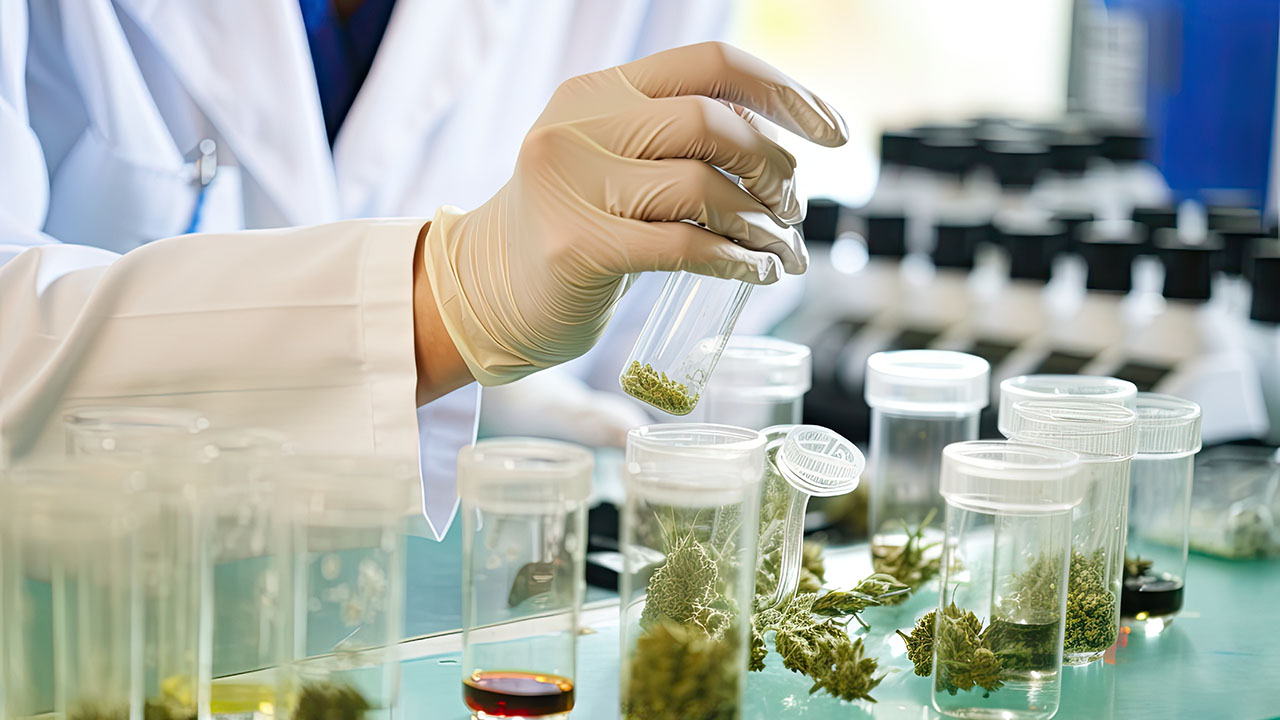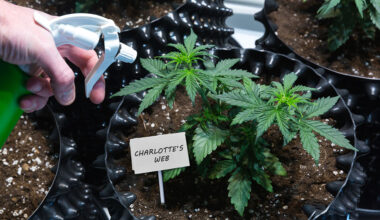In a first for the Massachusetts cannabis market, state regulators have suspended the business license for a commercial testing laboratory.
The suspension of Assured Testing Laboratories’ license by the state Cannabis Control Commission (CCC) comes amid nationwide scrutiny of testing lab results – and open accusations of THC potency inflation and other fraud.
According to the CCC’s suspension order issued Monday, the Tyngsboro-based lab’s established “pattern of failing to accurately report Total Yest and Mold test results” poses “an immediate and serious threat” to public health and safety.
However, no product recalls or other enforcement actions accompanied the order.
The lab must cease operations by 12:01 a.m. ET Friday under the order, but it has 21 days to request a hearing.
Lab ‘stands by what we do’
A representative for Assured Testing, reached via telephone by MJBizDaily on Tuesday, said the lab “stands by what we do” but did not immediately provide further comment.
A CCC spokesperson said in a statement that the suspension is the culmination of an investigation intended to improve “product testing as part of the Commission’s mission to oversee a safe, equitable cannabis marketplace in Massachusetts.”
“Through this Taskforce, the Commission will continue to verify the practices of licensees and take necessary action to ensure products sold through the adult- and medical-use markets are safe,” the statement added.
The CCC alleges that the lab tested more than 22,500 marijuana products, or roughly 25% of the cannabis in the state, from April 2024 to April 2025.
According to results that Assured Testing submitted to Metrc, the state’s seed-to-sale tracking software, only 10 samples out of 17,565 were failed for containing total yeast and mold in excess of state limits.
That’s a 0.05% fail rate, or 90 times below the state’s average fail rate of 4.5%, the CCC said.
Industry observers have said that such abnormally low fail rates are suspicious and cause for further investigation.
However, in raw data provided by Assured Testing and analyzed by the state:
- 7,183 lab samples tested for microbial levels between 0 and 10,000 colony forming units (CFU) per gram but were reported in certificates of analysis (COAs) or to Metrc as “zero or non detect.”
- 544 samples tested in excess of the 10,000 CFU-per-gram limit, but the lab didn’t report those failures to the CCC or input them into Metrc.
- 160 samples were retested after they exceeded the action limit, but those failures “were either omitted from data entry … or reported as non-detect” in COAs and in Metrc.
Regulator alleges ‘intentional effort to conceal’ findings
Massachusetts law requires a lab to report a failure to the CCC within 72 hours.
Assured Testing’s failure to do so amounted to “an intentional effort to conceal those failing results and only report the favorable results on behalf of its clients,” according to the CCC’s suspension order.
Currently one of 15 labs licensed in Massachusetts to test cannabis, Assured Testing employs 33 people, according to the CCC.
The lab was one of eight accused in a February lawsuit filed by a competitor of “fraudulent” practices, including THC potency inflation and allowing contaminated cannabis to be sold on the market.
This year, testing lab licenses in Arizona and California have been suspended or revoked.
Chris Roberts can be reached at chris.roberts@mjbizdaily.com.
Subscribe to the MJBiz Factbook
Exclusive industry data and analysis to help you make informed business decisions and avoid costly missteps. All the facts, none of the hype.
What you will get:
- Monthly and quarterly updates, with new data & insights
- Financial forecasts + capital investment trends
- State-by-state guide to regulations, taxes & market opportunities
- Annual survey of cannabis businesses
- Consumer insights
- And more!
Medical Disclaimer:
The information provided in these blog posts is intended for general informational and educational purposes only. It is not a substitute for professional medical advice, diagnosis, or treatment. Always seek the advice of your physician or other qualified healthcare provider with any questions you may have regarding a medical condition. The use of any information provided in these blog posts is solely at your own risk. The authors and the website do not recommend or endorse any specific products, treatments, or procedures mentioned. Reliance on any information in these blog posts is solely at your own discretion.






